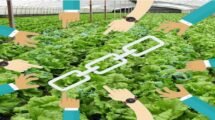Climate change is significantly impacting India’s agriculture, with some horticultural crops facing yield losses of up to 65% due to irregular rainfall and rising temperatures, as discussed in the Parliament on Friday.
In a written reply in the Rajya Sabha, Union Minister of State for Agriculture and Farmers’ Welfare Bhagirath Choudhary said that erratic rainfall and high temperatures are negatively affecting the productivity of key crops.
He cited specific examples:
-
Onion yields drop by 36.6% when fields are waterlogged for six consecutive days.
-
Tomato crops can suffer up to 65% yield loss if temperatures exceed 40°C during the flowering stage.
-
A 1.5°C to 2°C rise in winter temperatures causes apple farming to shift to higher altitudes, resulting in a 30% drop in yield.
Impact on Fisheries and Aquaculture
Choudhary also noted that even a 1°C rise in temperature can drastically affect the survival and distribution of freshwater and marine fish species. Brackish water aquaculture is moderately vulnerable to seasonal changes (20–40% losses), but extreme weather events like floods and cyclones can cause losses of up to 100%.
Genome-Edited Rice Varieties Safe, Says Government
On a separate issue, Choudhary assured that genome-edited rice varieties such as DRR Dhan 100 (Kamala) and Pusa Rice DST1 do not pose any threat to crop diversity. These varieties have been developed using indigenous public-sector parent varieties—BPT 5204 and MTU 1010.
He emphasized that these crops are considered normal mutated lines and do not affect India’s seed sovereignty. Seeds will be produced and distributed by public institutions such as the National Seeds Corporation and Bharatiya Beej Sahakari Samiti Ltd.
e-NAM Platform Expands Market Access for Farmers
Union Minister of State Ramnath Thakur shared updates on the National Agriculture Market (e-NAM). As of June 30, 1,522 mandis have been integrated with the platform, with registrations including 1.79 crore farmers, 2.67 lakh traders, and 4,518 Farmer Producer Organisations (FPOs).
The total value of trade on the e-NAM platform has reached ₹4.39 lakh crore. Also Read | eNAM Integration Helping Farmers Get Better Prices: BITS Goa Professor
Thakur said e-NAM helps farmers get better prices by allowing them to sell directly to buyers, bypassing intermediaries. It offers real-time pricing, online payments, and quality grading, empowering farmers with broader market access and transparency.
Agricultural Revolution 4.0: AI and IoT Leading the Way
Thakur also highlighted the government’s push towards Agri 4.0, using Artificial Intelligence (AI) and Internet of Things (IoT) technologies to improve crop productivity and sustainability.
He mentioned ‘Kisan e-Mitra’, a voice-based AI chatbot that currently handles over 20,000 queries daily in 11 regional languages, mainly about the PM-Kisan scheme.
To address climate-related crop losses, the National Pest Surveillance System uses AI and machine learning to detect pest infestations early. Over 10,000 extension workers use the tool, which supports 61 crops and over 400 pest types, helping farmers take timely action to protect their crops.


















Add Comment